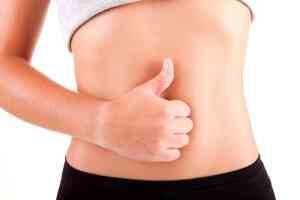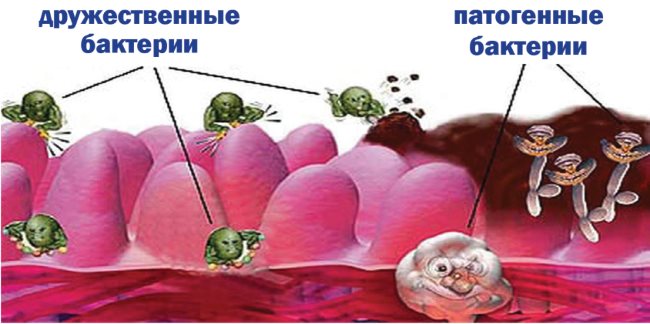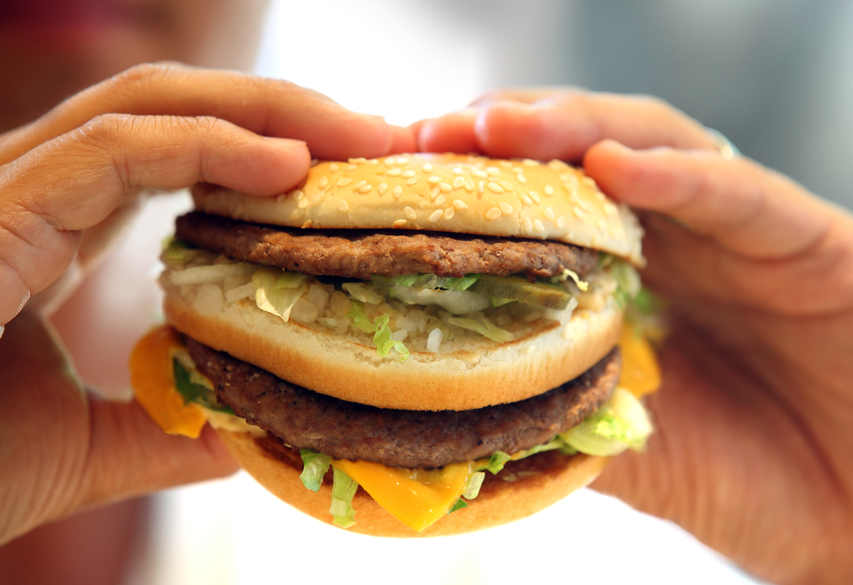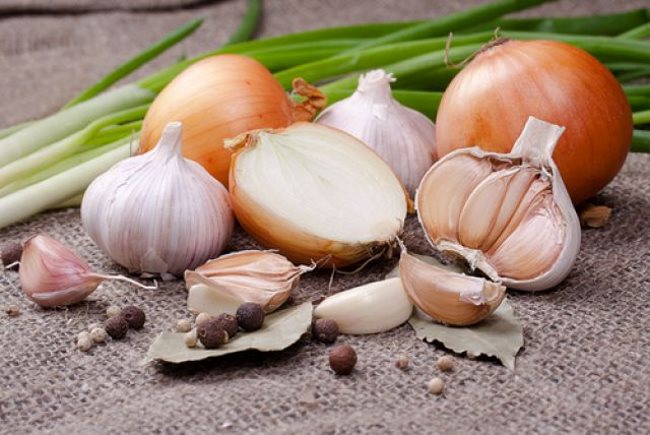How to improve digestion and stool in an adult. How to restore bowel function after long-term use of laxatives
Patients who undergo surgery usually receive a powerful antibiotic therapy, anesthesia, painkillers.
Such medical intervention is often accompanied by undesirable consequences:
motor disorder,
Violation of digestion and assimilation of food,
Exacerbation of intestinal diseases,
Depressed mood.
Also, after surgery, patients may experience discomfort, pain. associated with the process of tissue healing, the formation of sutures.
Tasks of bowel recovery after surgery:
Normalize peristalsis, that is, restore the physiological motility of the intestine so that the stool is regular,
Prevention of dyspepsia and drug-induced intestinal dysbacteriosis,
Improving the function of the mucous membrane of the stomach and intestines, improving the digestion and assimilation of food.
Prevention of long-term postoperative consequences,
Improving the quality of life.
Methods for restoring the intestines after surgery:
They can be conditionally divided into three - medicinal, phytohealth, dietary.
Of the medicines, enzymes, motility regulators, and probiotics are most often prescribed. However, all of them, at best, temporarily replace the body's own reserves, serve as a kind of "crutch". These drugs relieve some symptoms for the time they are taken. After stopping the drugs, the problems usually return.
Phytohealth method has an undeniable advantage in that with the help of herbs it is possible to regulate the natural functions of the body - motility, the production of digestive enzymes, improve metabolism, support the functioning of the liver, kidneys, blood and lymphatic vessels. Phytohealth allows you to restore your own beneficial microflora without overseeding foreign flora.
Diet for the restoration of the intestine after surgery is as important as the method of phytohealth. These are the two pillars of the healing technique. The diet is selected for the patient, taking into account his symptoms and taking into account concomitant diseases and taking into account the severity of the condition.
Our phytohealth method for bowel recovery after surgery includes herbal remedies and personalized nutritional advice.
The method has a high degree safety, so it is suitable for both adult patients and children and the elderly.
Rehabilitation after bowel surgery
Our rehabilitation center deals with the return to normal life of patients after a variety of operations on the intestines. Diseases of the digestive tract require increased attention to themselves, since the improper functioning of this system affects the entire body. Again, as with any other type of surgery, recovery after bowel surgery depends to a large extent on the specific type of surgery. It is one thing to restore normal operation after removal of the appendix, and quite another after resection of the rectum.
The specialists of our center will help you if you have suffered:
- colostomy. This operation is the removal of the rectum to the anterior part of the abdominal cavity.
- anastomosis. This type of operation occurs in the case of inoperable intestinal tumors.
- resection. In this case, special rehabilitation after bowel surgery is required.
- enterotomy - removal of a foreign body from the intestine.
This is not a complete list of operations that are performed on the organs of the digestive tract. Regardless of the complexity of the operation, our specialists will help to carry out rehabilitation after surgery on the intestines and restore the functioning of internal organs.
This website is for informational purposes only and under no circumstances is it a public offer.
There are contraindications. It is necessary to consult with a specialist. map of site
Such surgical interventions on the intestines, such as suturing the intestines, removing the appendix and part of the colon or small intestine affect the entire body of the patient. Thus, a weakening of intestinal motility can occur, which leads to stagnation of the intestinal contents, and bloating of the intestines can also occur. This condition of the intestine leads to the fact that it presses on the diaphragm, which, in turn, presses on the lungs and heart. The functions of the heart and lungs are also impaired because of this.
After the operation, it takes time to restore health, so the patient is released from work.
After being discharged from the hospital, the patient during the first days must comply with the regime established, in accordance with the nature of the operation, in the surgical department.
Usually, the condition and well-being of a person discharged from the surgical department is satisfactory, but he still should not overestimate his strength. Many patients, especially young people, return to the normal rhythm of life and thus lead to complications.
This also applies to women who, after being discharged, begin to do household chores, which leads to serious consequences. In this case, the attention of relatives plays an important role in the recovery of the patient after surgery.
But the patient must also know what he can do and what not, and strictly adhere to the recommendations of the doctor.
The patient can only do light work around the house. The patient who has undergone surgery gets tired quickly within a certain time. Therefore, he should rest more, not lift weights. It is recommended several times a day, lying on your stomach and bending your knees, do light stroking of the abdomen for several minutes.

A patient who has undergone surgery is contraindicated for prolonged static stress. In order for the load on the muscles to be uniform, the patient should change position as often as possible.
Wholesome nutrition will help recovery after bowel surgery. Two to four months it is necessary to consume dairy and vegetable dishes. Cereals, vegetable puree, white bread, butter, kefir, cream, eggs are easily absorbed by the body, which is very important after an operation on the intestines. You should also eat lean and boiled meat and fish. You can not include in the patient's diet products that cause intestinal irritation - smoked, canned food, marinades, garlic, onions, mustard, vinegar, alcohol and others.
Bowel function after surgery will help restore berries, fruits, vegetables, as they normalize bowel activity, preventing constipation, and are also a source of vitamins.
The patient must comply with the regimen: sleep for at least eight hours, walk several times a day, and exercise.
If part of the intestine was removed, then the patient should follow the recommendations given by the attending physician, since recovery after such an operation is individual.
How to restore bowel function after surgery
Hello! Please help us with advice. My sister was diagnosed with rhabdomyosarcoma of the retroperitoneum. The tumor completely covered the right kidney in a muff-like manner. The kidney was removed along with the tumor. But the second day after the operation, intra-abdominal bleeding began. Another operation was performed. Then everything proceeded without complications. Two weeks after the operation, we cannot restore the functioning of the gastrointestinal tract. After eating, water with mucus comes out. Please tell me how to restore the normal functioning of the intestines and what are the forecasts for the further life of a person with such a diagnosis. Thank you in advance for your answer.
The advice is provided for informational purposes only. Based on the results of the consultation, please consult a doctor, including to identify possible contraindications.
Last questions to the oncologist
Maryana asks: What kind of analysis
Question date: Yesterday, 23:30 | Replies: 0
Irina asks: Diagnosis: Dr.gl.mammas sinistrae
Question date: Yesterday, 11:58 | Replies: 0
Question date: 21.12.2016, 23:05 | Answers: 1
Ekaterina asks: Lymphocytosis
Question date: 21.12.2016, 23:04 | Replies: 0
To ask a question to an oncologist online for free, you need to register on the Eurolab portal. If you are interested in online consultations of other doctors or you have any other questions and suggestions - write to us. we will definitely try to help you.
After Fortrans, restoration of the intestinal microflora will be required
Over the years of work on the walls of the intestines, kilograms of toxins unnecessary for the body accumulate, usually the body cleansing procedure is carried out with the help of special diets and cleansing enemas. The medical preparation Fortrans helps to cleanse the intestines, avoiding some unpleasant procedures.
Fortrans, due to its composition, has a rather strong laxative effect, after Fortrans therapeutic starvation, diets give a much greater effect. The drug is also used in surgery, before performing operations on the intestines.
You can use Fortrans at home. Before use, it is necessary, exactly in accordance with the enclosed instructions, to maintain a certain diet, after taking Fortrans, for about six hours, the intestines will be cleansed.
To restore the intestinal microflora after Fortrans recommend some time take Linex or Bifidumbacterin.
Why do new drugs grab our attention so much? Subscribe and read the new issue!
Sources: www.opencentre.ru, rc-udprf.ru, goldstarinfo.ru, www.eurolab.ua, apteke.net
There is practically no coarse food in our diet. This negatively affects the functioning of the intestines. The body begins to minimize the delivery of nutrition through its blood vessels. The muscular layer of the intestinal wall weakens, because it ceases to exercise in the promotion of food and from this receives a small amount of nutrition. All this leads to constipation. But it's curable. It is enough to know what diet to choose and how to restore the intestines.
About microflora
Microflora is a metabolic system that produces and destroys its own and foreign substances that take part in the movement and absorption of harmful and beneficial agents. This system depends on the external environment and on the microbes that are in it, so it is not stable. Intestinal microbiota are living microorganisms that are beneficial and dangerous to human health. In total, there are more than 500 species of such microorganisms.
About dysbacteriosis
Dysbacteriosis is a violation in microbial ecology, it is an imbalance between beneficial and harmful microflora in the human body. This disease does not allow the body to properly digest food, break it down into fats, proteins, carbohydrates. As a result, during the day, food is not excreted from the body and completely not digested, it begins to rot in the intestines. At the same time, decay products are absorbed into the blood. Often dysbacteriosis causes allergies, anemia, bronchial asthma, depression and chronic fatigue.
How to restore the intestinal microflora
First you need to identify the cause of the dysbacteriosis. To restore the microflora and get rid of dysbacteriosis, beneficial bacteria and lactic acid foods are needed. A large number of such bacteria are found in fermented baked milk, acidophilus, yogurt (homemade) and yogurt. Probiotics, bowel cleansing, drugs prescribed by a doctor and folk remedies. Vegetables and fruits will help restore the intestinal microflora after antibiotics:
- Cabbage,
- Carrot,
- Garlic,
- Celery,
- Parsley,
- Jerusalem artichoke,
- Apples,
- Beet.
When they enter the intestines, the accelerated reproduction of beneficial microorganisms that are contained there begins. Pickled beets are especially useful. Let's talk in more detail about how to restore bowel function with the help of fruits and vegetables:
- Beet. Peel the beets and cut into cubes. Make the marinade: Mix water with apple cider vinegar, salt, garlic, allspice and cloves. Pour the marinade over the beets, cover it with a lid and let it brew for a day at room temperature.
- Apples. Eat at least three sweet and sour apples every day.
- Garlic. At dinner, eat 2-3 cloves of garlic and drink it with yogurt.
Also useful for the intestines:
- Blueberry,
- Raspberries,
- Currant,
- Horseradish,
Healthy microflora is formed by:
- Plantain,
- Sagebrush,
- St. John's wort,
- Cherries,
- Raspberries,
- Blueberry.
Preparations that restore the intestinal microflora
Probiotics are products that contain live beneficial bacteria. They restore the biological balance of the intestine. The origin of the preparations is absolutely natural, the bacteria are taken from the organisms of healthy people. Bacteria enter the patient's body and settle there. They multiply, displacing pathogenic (harmful) microorganisms. Beneficial bacteria improve the digestion process and strengthen the protective functions of the body.
Means that restore the intestinal microflora are selected depending on the results that the study of feces shows. The analysis will accurately show which beneficial microorganisms the body needs. The most common medicines: "Biovestin", "Bifidumbacterin forte", "Linex", "Baktisubtil", "Bifiform", etc. Bifiform is a drug that, like Linex, is suitable for adults and children. It restores not only the intestinal microflora, but also the immunity of people who are prone to frequent colds.
Colon cleansing with apples
From a large accumulation of toxins, the intestinal microflora is disturbed in the body. Apples perfectly cleanse the intestines and restore its functions.
- You will need 5 kg Antonov apples. Wash them and put them in a bowl.
- Pour boiled water over ripe apples, cover them with a lid and place them in a warm place for two hours.
- Wipe the fruit through a colander so that you get a homogeneous mass.
- Use the mass for three or four days. All other foods will have to be excluded at this time. Such a diet perfectly cleanses the intestines.
ethnoscience
Want to know how to restore the intestines after antibiotics without medication? Use folk recipes:
- Recipe one. Take the crushed burnet roots (15 g) and fill them with boiled water (200 g). Put the raw materials on a small fire for 20 minutes. Strain the decoction and take 5-6 times a day, 1 tbsp. lies. inside for a month.
- Recipe two. Steam fresh mint leaves (3 tablespoons) with boiled water (1 cup). Wait for the tincture to cool down. Strain it and take it orally 4 times a day for? glass.
- Recipe three. Pour dill seeds (4 teaspoons) with one glass of boiling water. Leave for two hours. Every two hours drink raw materials during the day.
So that intestinal dysbiosis does not threaten you, try to eat well, not be stressed, play sports and, if possible, ensure that you stay in a normal environment.
How to restore bowel function after long-term use of laxatives
Asks: Natalia, Poltava
Gender Female
Age: 31
chronic diseases: not specified
Hello! I am 31 years old. Please tell me how to re-learn to live the intestines? For about 10 years she took the laxative senna in granules (drank as tea 2 times a day). It all started with the usual constipation, and then it got addictive. Time can not be returned, but now I understand that it was a huge mistake and this laxative is dangerous. Against this background, hemorrhoids 2-3 stage and chronic anal fissure developed. Addressed to the proctologist and gastroenterologist. The proctologist said the stool needs to be adjusted, otherwise the crack problem cannot be cured. I did an ultrasound of the abdominal cavity, everything is in order. The gastroenterologist told me to eat a diet rich in fiber, drink plenty of water and take lactulose. I ate and eat mostly always right: soups, borscht, stews, pumpkin, a lot of fruits, etc. I do exercises. I haven’t taken senna for 2 months already, I took Normaze and vaseline oil, I didn’t notice the effect: stool every 2-3 days and colic in the stomach. I tried Zapzandra (lactulose) with Laktofiltrum (tablets), a little better, but the same colic and dependent stools. Now I drink Mucofalk for about a month. From him strong gases and a stomach like a drum, it's hard to breathe. In all cases, after a month, there was never an independent emptying, only with the help of pressure in the left abdomen and digital stimulation in the anus. It all takes about 40 minutes, the feces come out with difficulty, in portions, in a soft mushy form. I go to the toilet not because of the urge, they are not there, but when I already feel overcrowding of the intestines and colic in the lower abdomen. After that, it's a little easier. Nutrition, as the doctor said, is fractional, fiber, water (I have 2 liters of clean water and about 1-1.5 liters of tea, kefir). Drinking so much makes me feel a bit nauseous. Gained a couple of kilograms, maybe due to stagnation in the intestines. I add bran to kefir. Please tell me what I'm doing wrong and how I can help. What is your opinion about biofeedback therapy? Thanks!
1 answer
Don't forget to rate the doctors' answers, help us improve them by asking additional questions on the topic of this question.
Also do not forget to thank the doctors.
Natalia! Replace Mucofalk with Trimedat. Normase can be taken up to 6 months. Then you can switch to Phytomucil powder. Which restores the work of the intestines with constipation. You are shown sanatorium-resort treatment. Irrigation of the intestines with mineral water, thermal procedures on the intestines, if there are no contraindications. You live near the resort town of Mirgorod.
Site search
If you did not find the information you need among the answers to this question, or if your problem is slightly different from the one presented, try asking additional question doctor on the same page, if he is on the topic of the main question. you also can ask a new question, and after a while our doctors will answer it. It's free. You can also search for relevant information in similar questions on this page or through the site search page. We will be very grateful if you recommend us to your friends in in social networks.
Medportal site provides medical consultations in the mode of correspondence with doctors on the site. Here you get answers from real practitioners in your field. At the moment, on the site you can get advice in 43 areas: allergist, venereologist, gastroenterologist, hematologist , genetics , gynecologist , homeopath , dermatologist , pediatric gynecologist, pediatric surgeon, pediatric endocrinologist, nutritionist , immunologist , infectious disease specialist , cardiologist , cosmetologist , speech therapist , ENT specialist , mammologist , medical lawyer, narcologist , neurologist , neurosurgeon , nephrologist , oncologist , oncourologist , orthopedist-traumatologist, ophthalmologist , pediatrician , plastic surgeon , proctologist , psychiatrist , psychologist , pulmonologist , sexologist-andrologist, dentist , urologist , pharmacist , herbalist , phlebologist , surgeon , endocrinologist .
We answer 97.89% of questions.
Stay with us and be healthy!
Laxatives are supposed to restore stools, but in reality you often have to solve the inverse problem: how to restore stool after laxatives.
Why do we get hooked on laxatives?
Improper nutrition, stress, lack of time for sports - all this can disrupt digestion. And we notice this only when we can’t longer than usual go to the toilet.
And here is constipation. What to do? Many people buy the first drug they see, which is not necessarily safe and addictive, and then puzzle over how to restore stool after laxatives.
How to restore stool after laxatives
The first tip is to think about nutrition. There are many products that will help as quickly as possible. fix a chair. What does this menu include?
- Fruits and vegetables rich in fiber- it is of great importance in the process of formation of feces of normal consistency. For example, it can be apples, bananas, peaches, cabbage, cucumbers, pumpkins, radishes.
- Cereals - buckwheat, oats, barley, pearl barley - improve bowel function and cleanse the body of toxins.
- Fermented milk products - kefir, tan, ayran, fermented baked milk - help restore microflora, improve digestion and restore stool after laxatives.
- As much plain water as possible .
It is important to know that food for constipation should be fractional so as not to burden the stomach and not slow down the digestion of food.
How to restore stool after laxative gymnastics
Who does not know about the benefits of gymnastics? There are many exercises that will not only improve your appearance, but also help to avoid constipation, as well as restore stool after taking laxatives.
All eyes on the abdomen! You can perform the well-known “bicycle”: pull your legs towards you, bring your knees together and spread them apart. The “cat” exercise is very effective - arching the back up on all fours. Such a simple workout will stimulate the work of internal organs.
How to restore stool after laxative massage
If it is not possible to go to a specialist, you can master the massage technique yourself. First you need to lie down and relax, then put your hand on your stomach and gently massage it clockwise for ten minutes.
Another option is to wrap your hand in a towel soaked in cool water and knead your stomach from top to bottom, first with right side, then from the left.
Medications to restore stool
Often, digestive disorders are accompanied by a violation of the intestinal microflora, so our first task is to restore it. Here we will be helped by probiotics - drugs, which include strains of "friendly" bacteria.
Another mandatory part of the recovery program is vitamins and mineral complexes, because even a short intake of laxatives can disrupt the delicate balance of nutrients in the body.
Nothing helps! What to do?
Given that taking "aggressive" laxatives disrupts the bowel, makes it lazy, at first, gymnastics, proper nutrition and massage may not be enough.
So after all, what will restore the stool after laxatives? It sounds paradoxical, but ... other laxatives will help, namely, safe representatives of this group.
Holidays, accompanied by long feasts, off-season, bringing with it viral infections, self-help through uncontrolled intake of drugs - lead to the fact that beneficial intestinal bacteria die. Violation of the microflora further exacerbates the situation and gives impetus to the emergence of new and development of old diseases. Then the question arises of how and how to restore the intestinal microflora without harming even more.
What is microflora?
The intestines of a healthy person are inhabited by more than one hundred microorganisms that perform the functions necessary for the life of the body. The totality of these bacteria is called the microflora. Two kilograms of a healthy person's weight is made up of intestinal microorganisms.
Video:
The microflora can be natural (the main, useful population of the intestine), and pathogenic (pathogenic bacilli that enter the body under the influence of certain factors).
The track record of the results of the activity of beneficial microflora is worthy of respect:
- Intestinal bacteria contribute to the perfect process of digestion of food, metabolism.
- Flora helps the body to absorb valuable substances, vitamins, minerals obtained from food.
- strengthening immune system, increased resistance to viruses and infections is also the result of the work of the intestinal microflora.

Causes of violation of microflora
The main reasons that led to the violation of the intestinal microflora are most often due to external influences on the body and in most cases through the fault of the people themselves.
- Antibacterial drugs, antifungal, antiseptics, acting on the diseased microflora, destroy beneficial microorganisms. Adequate intake of antibiotics, as prescribed and under the supervision of a specialist, does not cause significant disruptions in the life of the natural microflora. On the contrary, self-medication, self-control of taking such drugs will not benefit, but harm the necessary bacteria.
- Regular bowel cleansing at home through an enema, laxatives, entails getting rid of not only constipation, but also from microorganisms important for the digestive tract.
- Significantly disturb the intestinal microflora can excessive drinking of alcoholic beverages, the predominance of harmful semi-finished products in the menu. Poor-quality products containing a large amount of preservatives, stabilizers, thickeners, disrupt the normal functioning of the intestines.
- Hormonal drugs, chemotherapy reduce immunity, adversely affect the microflora contained in the intestine.

Symptoms and signs of dysbacteriosis
It is possible to improve, normalize and restore the intestinal microflora with proper treatment based on correctly identified symptoms:
- With constipation and diarrhea that are permanent in nature, accompanied by painful sensations in the abdomen, one can suspect a violation of the quantity and quality of the microflora.
- A malfunction in the intestines is often accompanied by dry skin, brittle nails, hair loss, acne, and allergic rashes.
- The general state of health is weakened, dysbacteriosis is characterized by apathetic mood, depression.
Preparations to restore the lack of bacteria
The colossal benefits of probiotics and prebiotics are familiar to many at least from advertising on TV.
Preparations that improve and restore the digestive process, normalize the intestinal flora, rid the body of toxins, strengthen the immune system, and stimulate the intestinal mucosa. But long-term use of drugs that maintain a balance of healthy microorganisms can be addictive.
Another mistake in self-treatment of dysbacteriosis is the incorrect awareness of the patient about the differences between probiotic and prebiotic preparations. If you suspect an imbalance in the microflora, contact the hospital, the doctor will prescribe the necessary restorative drugs and tablets and prescribe a course of therapy. With dysbacteriosis, the following are prescribed medications, restoring failure in the intestinal environment.
| Probiotics | Prebiotics | Enzymes |
|---|---|---|
| The preparations contain live microorganisms - lactobacilli, enterococcus, E. coli, bifidobacteria, the introduction of which into the body has a positive effect on health. | The preparations contain components responsible for the growth, activity and vital activity of healthy intestinal microflora, are not absorbed in the digestive tract. | The composition of enzymes includes substances that improve and accelerate the process of digestion and metabolism. |
| Capsules: Acipol, Lineks, Bifiform; Suspensions: Bioflor, Enterogermina; Powders for solution: Bifidumbacterin, Bifilong, Bifinorm; Kpli: Hilak, Hilak fotre; Candles: Lactobacterin, Atsilakt. | Tablets: Laktofiltrum; Suspension: Duffalac; Syrup: Lactuzan Duo, Normaze, Portalak. | Capsules: Mekrazim, Ermital, Kreazim; Dragee: Mezim forte, Festal; Tablets: Zimet, Vestal. |
Restoration of microflora by folk remedies
Folk remedies for the normalization and restoration of intestinal microflora are subject to presentation and attention. As with drugs, the body should not be the guinea pig of its own experiments. Even alternative medicine needs an appointment, dosage adjustment, duration of therapy, so consult with knowledgeable people. Positive effect on the intestinal flora and its restoration, will have the following recipes, herbal preparations:

Normalizing the composition of the flora through diet
Proper nutrition and consumption useful products, a prerequisite that normalizes and restores the intestinal microflora. The best probiotics of all times and peoples are sour-milk, fermented products containing the right amount of beneficial bacteria.
Yoghurts with bifidobacteria, kefir, yogurt are the best, safe and inexpensive medicine for dysbacteriosis.
Nutrition should be varied, complex, including the use of cereals from various cereals, vegetables, fruits in raw and thermally processed form. In general, food should be mostly steamed, boiled, stewed.
Recovery of the intestinal mucosa largely depends on the drinking regimen. You need to drink often, in small volumes up to two liters a day. Important for the restoration of intestinal microflora complex therapy Keywords: medicines, proper nutrition, active way of life.

The degree of importance of beneficial microorganisms in the work of the digestive system. Causes of a decrease in healthy flora and body signals about dysbacteriosis. How to restore the intestinal microflora with drugs, folk methods and proper nutrition.
